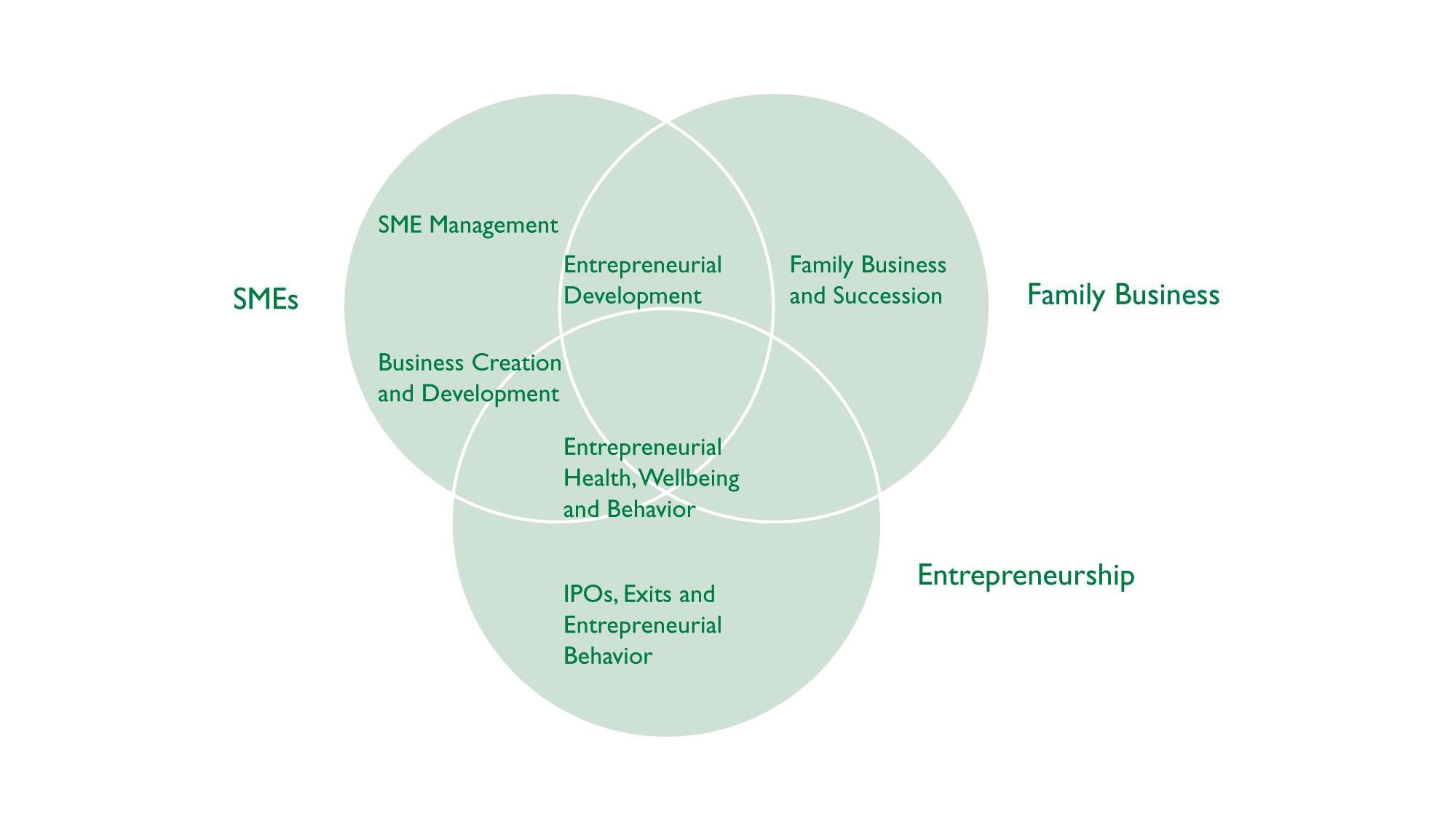SMEs and Family Business


Striving for excellence in research paired with strong practical impact, we generate novel scientific insights on small and medium-sized enterprises (SMEs) and family businesses. Our research has international outreach and is published in leading academic journals, shaping the state of the art knowledge on SMEs, entrepreneurship and family business.
We generate novel insights on SMEs, entrepreneurship and family businesses, thereby building theoretically founded and evidence-based knowledge on how entrepreneurial firms and family businesses operate and succeed. Our research is multifaceted and integrative, which is reflected in our “Fields of Expertise”:

“From research to impact” – this is our DNA. We integrate our research directly into our teaching and executive education, thus transforming our research into real impact.
Our research also has international impact through publications in leading scientific journals, presentations at international research conferences, international research collaborations, and presence in editorial boards of leading academic journals in the fields of Entrepreneurship and Management.